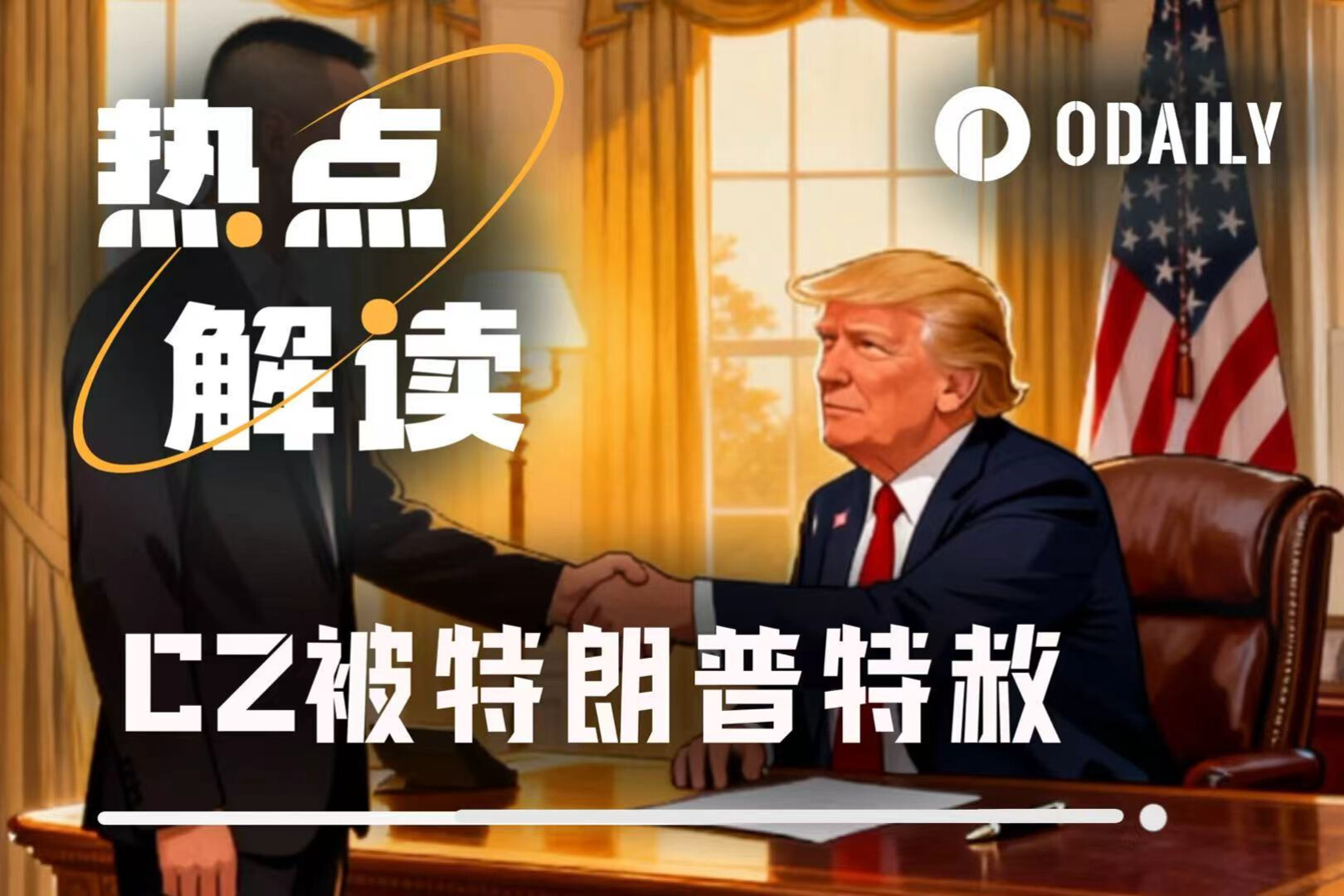Gregory Korte, Bloomberg
Original translation: Luffy, Foresight News
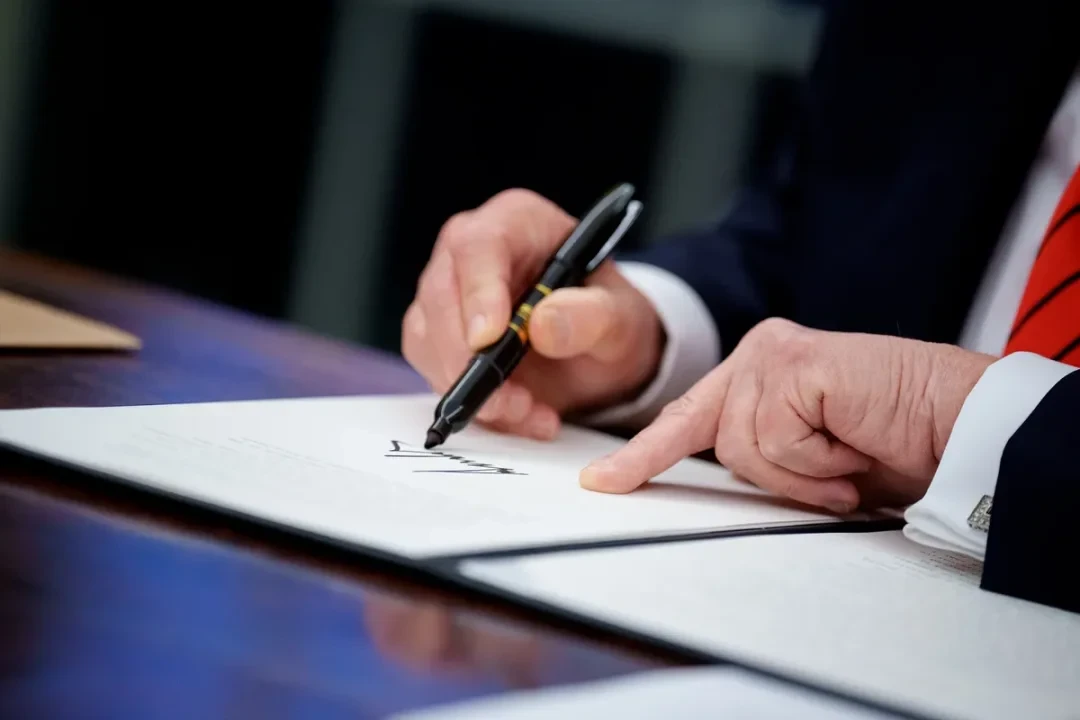
U.S. President Donald Trump signed a series of executive orders, including a pardon, in the Oval Office of the White House in Washington
The president's pardon power is one of the most absolute and often misunderstood provisions of the Constitution. As Alexander Hamilton noted, this power stems from the 7th-century prerogative of mercy granted by English kings. By granting the president a powerful pardon power, the Founding Fathers intended to provide a convenient avenue for exoneration for those unfortunate enough to have been convicted in the judicial system.
Today, that power is as controversial as the people who wield it. On the first day of his second term, President Donald Trump issued a sweeping pardon order for those convicted in the January 6, 2021, riot at the U.S. Capitol.
Trump's predecessor, Joe Biden, pardoned his son Hunter on tax and gun charges just weeks before leaving office. He also granted so-called "full pardons" to five other family members, citing concerns they were unfairly prosecuted during the Trump administration. Others pardoned included high-ranking government officials whom Trump had labeled political enemies and threatened to punish.
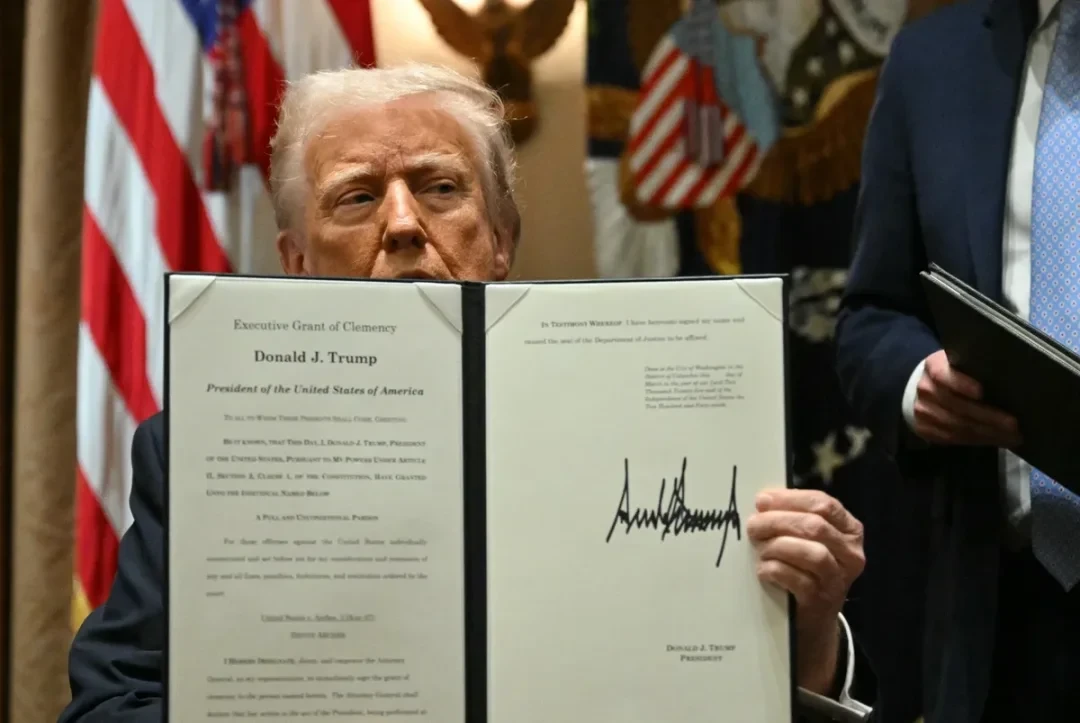
US President Donald Trump speaks after signing a pardon at the White House on March 25
What is a pardon?
A pardon is a legal leniency granted by the president, governor, or other executive authority. In some states, the governor exercises this power jointly with a board of pardons, but the power to pardon federal crimes rests solely with the president.
A pardon does not vacate a conviction; the conviction remains on the record, nor does it constitute a statement of guilt or innocence. A pardon falls under the president's broader executive pardon power, which also includes the following lesser pardons:
- Sentence reduction: reducing the sentence but retaining all other consequences of the conviction;
- Probation: postponement of the execution of a sentence;
- Penalty Remission: The reduction or waiver of a monetary penalty.
In modern times, the use of suspended sentences and fine reductions is rare.
How often does the president exercise his pardon power?
With the exception of two presidents who died in office, William Henry Harrison and James Garfield, every president has exercised the power of pardon. Since George Washington's first pardon for smuggling rum from Barbados in barrels less than 50 gallons, presidents have issued nearly 35,000 individual pardons.
The use of this power has decreased relatively in recent decades, with presidents mostly exercising it around holidays or at the end of their terms.
But Biden is an active pardoner. Before leaving office, he released 1,499 people from home detention, including some convicted of public corruption, commuted 37 death row cases, and shortened the sentences of 2,490 drug offenders who he said had been unfairly sentenced.
As of the last day of his presidency, Biden had issued 79 pardons and 4,168 commutations, making him the president who has exercised the power of executive pardon most frequently in U.S. history. The number of pardons he issued during his single term exceeded the total of the previous seven presidents.
Why does the president exercise the power of pardon?
In granting pardons, the president typically conveys his views on justice, mercy, norms, and social mores.
The pardon list is a snapshot of American social history, as successive presidents have struggled to heal old conflicts and reconcile the country with its more punitive past. Wars, rebellions, Prohibition, the war on drugs—these events were often followed by rounds of clemency years or decades after they occurred.
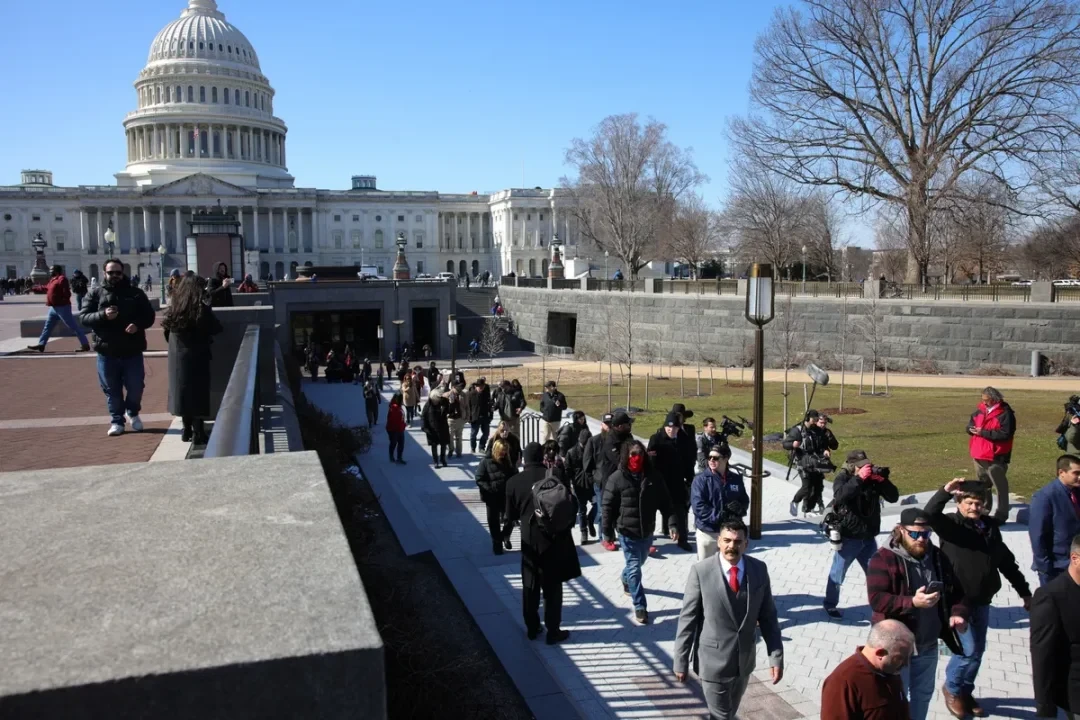
Leaders of the Proud Boys and Oath Keepers, who participated in the January 6, 2021 riots, at a press conference on Capitol Hill in Washington on February 21.
Trump's pardons of participants in the Capitol riot have clear precedent. In the 1790s, President Washington pardoned 10 ringleaders of the Whiskey Rebellion who were convicted of treason; Presidents Abraham Lincoln and Andrew Johnson pardoned Confederate soldiers, and President Gerald Ford pardoned their general, Robert E. Lee.
Some pardons are seen as motivated by self-interest. President Richard Nixon pardoned Jimmy Hoffa, the influential American labor leader who had been convicted of jury tampering and fraud and later supported Nixon's re-election campaign. President Bill Clinton pardoned financier Marc Rich, whose wife was a major Clinton campaign donor, who had been indicted for tax evasion and oil transactions with Iran during the embargo. On October 23, Trump pardoned Binance founder Changpeng Zhao, who had served four months in federal prison for failing to implement an effective anti-money laundering program at the cryptocurrency exchange. Prior to this, Zhao and Binance had become major backers of the Trump family's cryptocurrency project, World Liberty Financial.
What are the limitations of the power of pardon?
The Founding Fathers deliberately limited the conditions attached to the pardon power. Hamilton wrote that the power should be free from the constraints and hindrances that are possible.
The Supreme Court ruled that because the pardon power is a power expressly vested in the president by the Constitution, its limitations, if any, must derive from the Constitution itself.
In other words, a pardon is valid as long as it does not violate other provisions of the Constitution. Such unconstitutional cases are extremely rare: some commentators have suggested that accepting a bribe in exchange for a pardon could render it invalid, but this is not a clear conclusion.
The Constitution clearly stipulates two restrictions: first, the president can only grant pardons for federal crimes and has no right to interfere with state crimes; second, except in cases of impeachment, the president cannot use the pardon power to obstruct Congress's power to remove himself or other officials .
Can a presidential pardon be revoked?
Neither Congress nor the courts have the power to overturn a presidential pardon, but the president can revoke a pardon if the pardon document has not yet been delivered and accepted by the recipient of the pardon.
In 2008, President George W. Bush pardoned real estate developer Isaac Tucci, who was convicted of mail fraud. However, a day later, after learning that Tucci's father had donated to the Republican Party, Bush rescinded the pardon and directed that the pardon documents not be delivered. Because Tucci never received the paperwork, the pardon never took effect.
A president can also try to revoke a pardon that a predecessor hadn't served. In 1869, President Andrew Johnson granted pardons to three people convicted of fraud, but those pardons were ultimately rescinded when President Ulysses S. Grant took office a few days later and recalled the U.S. Marshals, who were responsible for serving papers.
Can the president pardon himself?
Most legal scholars believe it's not possible, based in part on the literal meaning of the pardon power. The Constitution provides that the president has the power to "grant" a pardon—meaning "to give" or "transfer" it—implying that a pardon must be granted to another person. Furthermore, before Nixon's resignation in 1974, the Justice Department's Office of Legal Counsel stated in a legal memorandum that, based on the fundamental principle that "no person shall be the judge in his own case," the president cannot pardon himself. Regardless, President Ford ultimately pardoned Nixon for all possible Watergate offenses.
But the issue has never been judicially tested, and even scholars who oppose self-pardons acknowledge it remains an unresolved question. However, there is a workaround: the president could temporarily transfer power to the vice president, who would then grant the pardon as acting president.
Can an early pardon be granted?
The president cannot grant a pardon for a crime that has not yet been committed; it is equivalent to a lifetime free pass.
The president can, however, grant pardons for crimes committed but not yet prosecuted. The Supreme Court's landmark 1866 decision in the Garland case, involving Confederate soldiers, established that the pardon power applies to all crimes covered by law and can be exercised at any time after a crime is committed—before or during legal proceedings, or after conviction and sentencing.
What is a "general amnesty"?
When a president grants a pardon, it doesn't need to specify a specific offense. This is called a "general pardon." The most famous example is President Ford's pardon of Richard Nixon, which covered all crimes committed during his presidency.
Biden's pardons of family members and officials designated as enemies by Trump before leaving office also fall into this category. These pardons included three siblings and their two spouses; officials included retired General Mark Milley, infectious disease expert Anthony Fauci, and members and staff of the committee that investigated the 2021 Capitol Hill attack and recommended prosecuting Trump.
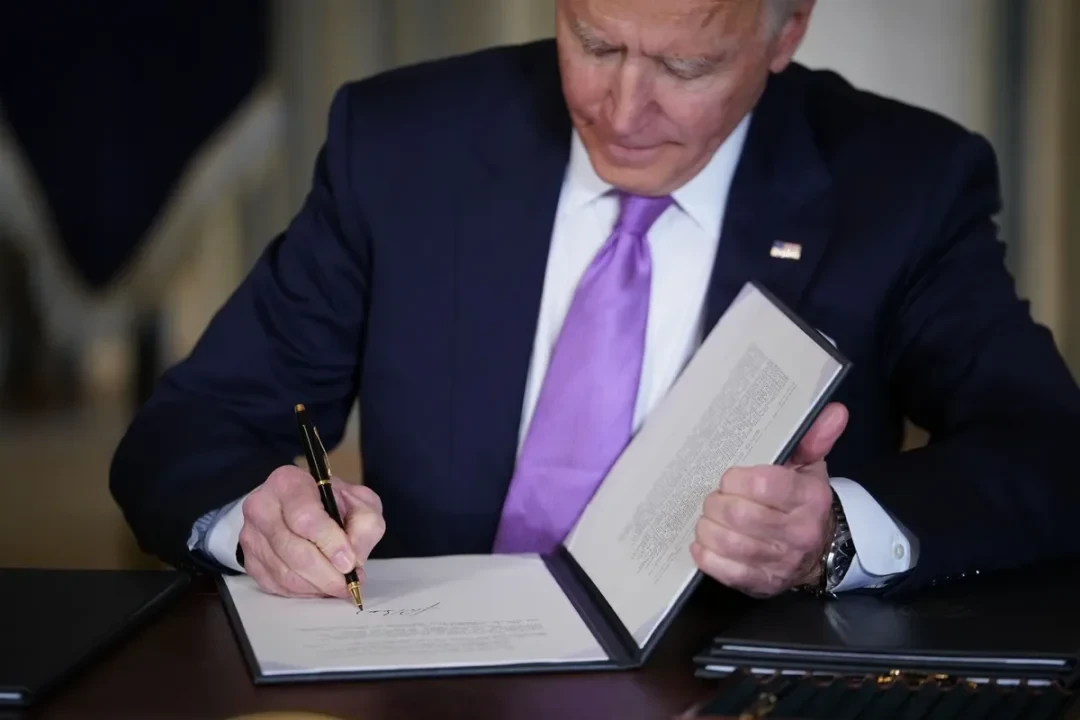
Former US President Joe Biden signs executive order at the White House
The committee includes former Republican Rep. Liz Cheney of Wyoming, who helped lead the investigation, and current Democratic Sen. Adam Schiff of California, who also led Trump’s first impeachment trial. Biden also pardoned members of the Capitol Police and the Washington, D.C., Metropolitan Police who testified before the committee.
Biden's pardon of his son Hunter includes not only the gun and tax evasion charges he was convicted of, but also any other crimes he may have committed in the previous 11 years.
Trump also pardoned several allies during his first term, including former political adviser Stephen Bannon and Albert Pirro II, the ex-husband of Fox News host Jeanine Pirro.
Does accepting a pardon mean admitting guilt?
Not really. Presidents often grant pardons to those they believe are innocent or have suffered injustice. For example, Trump posthumously pardoned boxer Jack Johnson, who was convicted in 1913 of transporting women across state lines for immoral purposes, a charge often used as a pretext for racist prosecutions. Biden pardoned service members convicted of violating the now-repealed military ban on consensual homosexual intercourse. And in one of his last clemency acts, he pardoned Marcus Garvey, the black nationalist leader convicted of mail fraud in 1923, a prosecution that civil rights activists long argued was racially motivated.
The common perception that a pardon implies guilt stems from the 1915 Supreme Court ruling in Burdick v. United States, which stated that a pardon carries an implicit presumption of guilt and that accepting a pardon is tantamount to an admission of guilt. President Ford kept this ruling in his wallet as justification for his pardon of Nixon.
But subsequent courts have not considered this presumption of guilt central to the Burdick decision, which concluded that a person granted a pardon has the right to refuse it.
Does a pardon have to be in writing?
In February 2024, a federal appeals court ruled: "The answer is undoubtedly no. The literal meaning of the Constitution imposes no such restriction."
But from a practical and historical perspective, it's safer to preserve the record. In that 2024 ruling, the Fourth Circuit Court of Appeals found that Trump's verbal statements to former Cleveland Browns running back Jim Brown, "I'll get it done" and "I hope it gets done," were insufficient to free a man serving a life sentence for drug trafficking and murder.
Does the president have to specify who to pardon?
No. Historically, categorical pardons have been granted to all individuals convicted of specific crimes. For example, President Jimmy Carter granted amnesty to deserters after the Vietnam War, and Biden implemented categorical pardons for marijuana-related offenses. In these cases, individuals convicted of specific offenses can apply for a certificate from the Office of the Pardon Attorney at the Department of Justice to demonstrate that they qualify for a pardon.
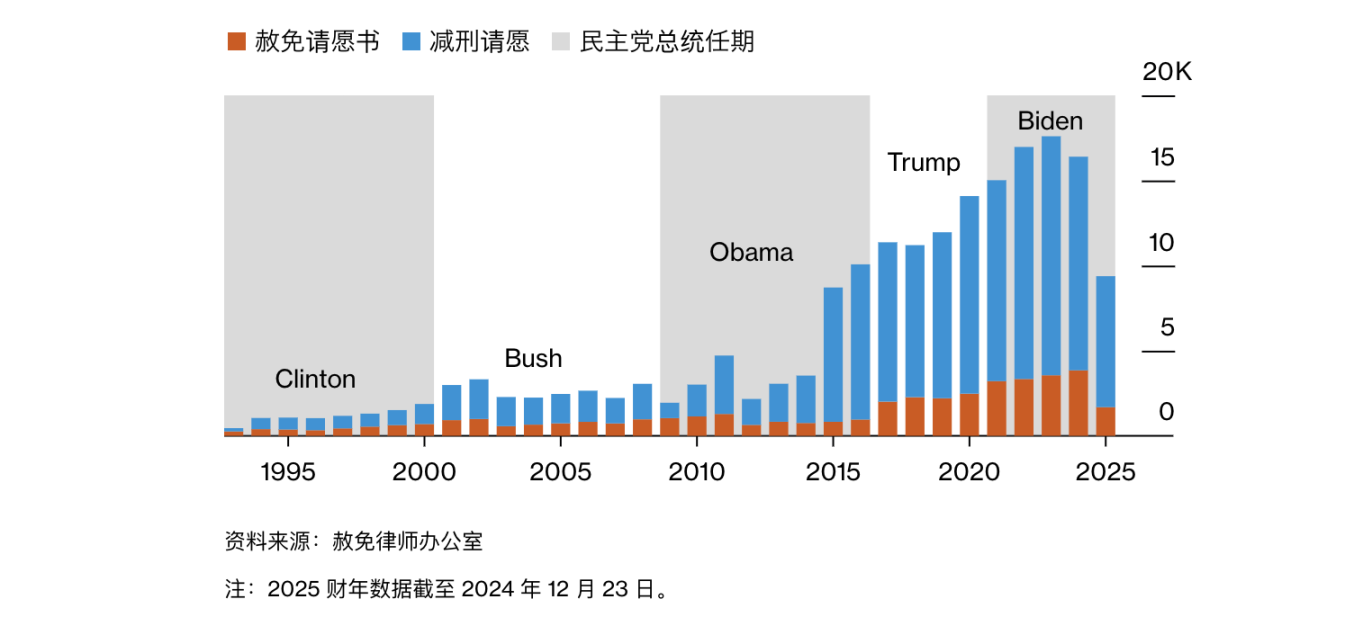
Number of presidential pardon applications pending in the Office of the Pardon Attorney at the Department of Justice by fiscal year
How to obtain a pardon?
There are two procedural paths to obtaining a pardon:
The first path, followed by President Barack Obama, involves submitting an application to the Office of the Pardon Attorney. This office typically requires a five-year wait before submitting an application and does not accept posthumous pardons or pardons for minor offenses. After a thorough review (including an FBI background check), the application is then forwarded to the Attorney General, the White House Counsel's Office, and ultimately the President's approval or rejection.
The second path, favored by Trump, involves a much more relaxed process. During his first term, he often followed the advice of celebrities like Kim Kardashian and Sylvester Stallone, skipping waiting periods and background checks and signing pardons in grand ceremonies.
Most presidents use a combination of the two paths, with more controversial pardons often being granted directly to the president.
One reason for bypassing the bureaucracy: The backlog of pardon applications reached a historic high during Biden's administration, and it was not until he approved a batch of applications before leaving office that the backlog was reduced to pre-Trump levels.
- 核心观点:美国总统赦免权具有绝对性且常被政治化。
- 关键要素:
- 特朗普赦免国会山骚乱者及币安创始人。
- 拜登创纪录签发4168项减刑令。
- 宪法仅限联邦罪行及弹劾案不可赦免。
- 市场影响:可能影响加密行业监管预期。
- 时效性标注:长期影响



